
Global Perspectives on Artificial Intelligence
31 July, 2023
Artificial Intelligence, or AI, has become an integral part of our lives, shaping the way we live and interact with technology. Understanding how people across the world feel about AI and its impact is essential to embrace its potential fully. In a survey spanning 31 countries, we explore diverse attitudes towards AI, delving into its perceived benefits, concerns, and future implications.
Understanding AI - Some Know, Some Don't
When it comes to AI knowledge, opinions are split. About two-thirds of respondents claim to have a good understanding of AI itself, but only half feel confident in identifying products and services that use it. Those who are younger, employed, educated, and well-off seem more familiar with AI-driven offerings. However, awareness varies widely between countries, with Indonesia and Malaysia leading, while Belgium, New Zealand, and the United States lag behind.
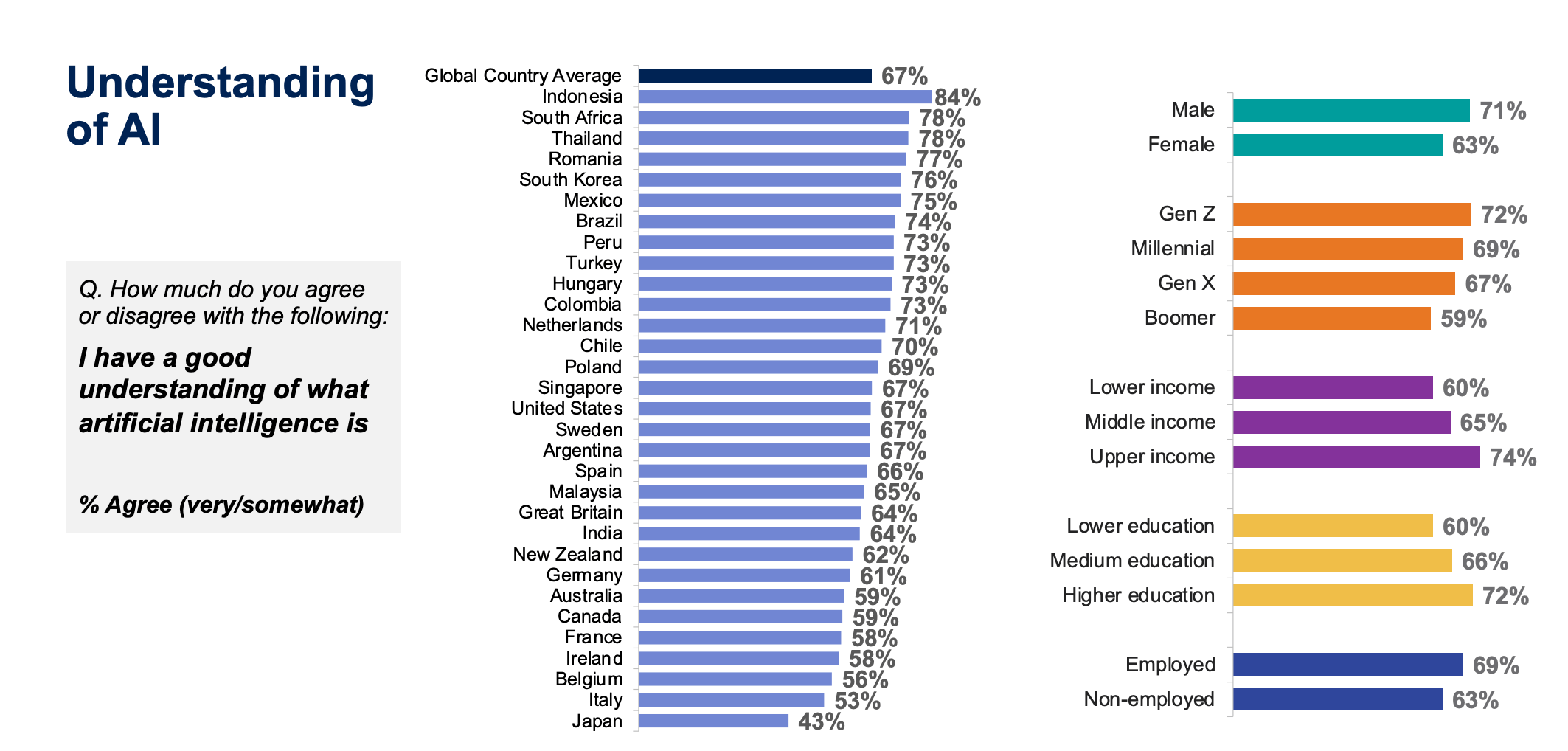
A Mix of Emotions - Excitement and Apprehension
AI elicits both excitement and nervousness in people worldwide. Roughly half of respondents are enthusiastic about AI-powered products and services, while an equal number feel uneasy about their implications. Excitement is highest in emerging markets and among Gen Zers and Millennials, especially those with a college education. On the other hand, nervousness is most pronounced in Anglophone countries, whereas Japan, Korea, and Eastern Europe appear more at ease.
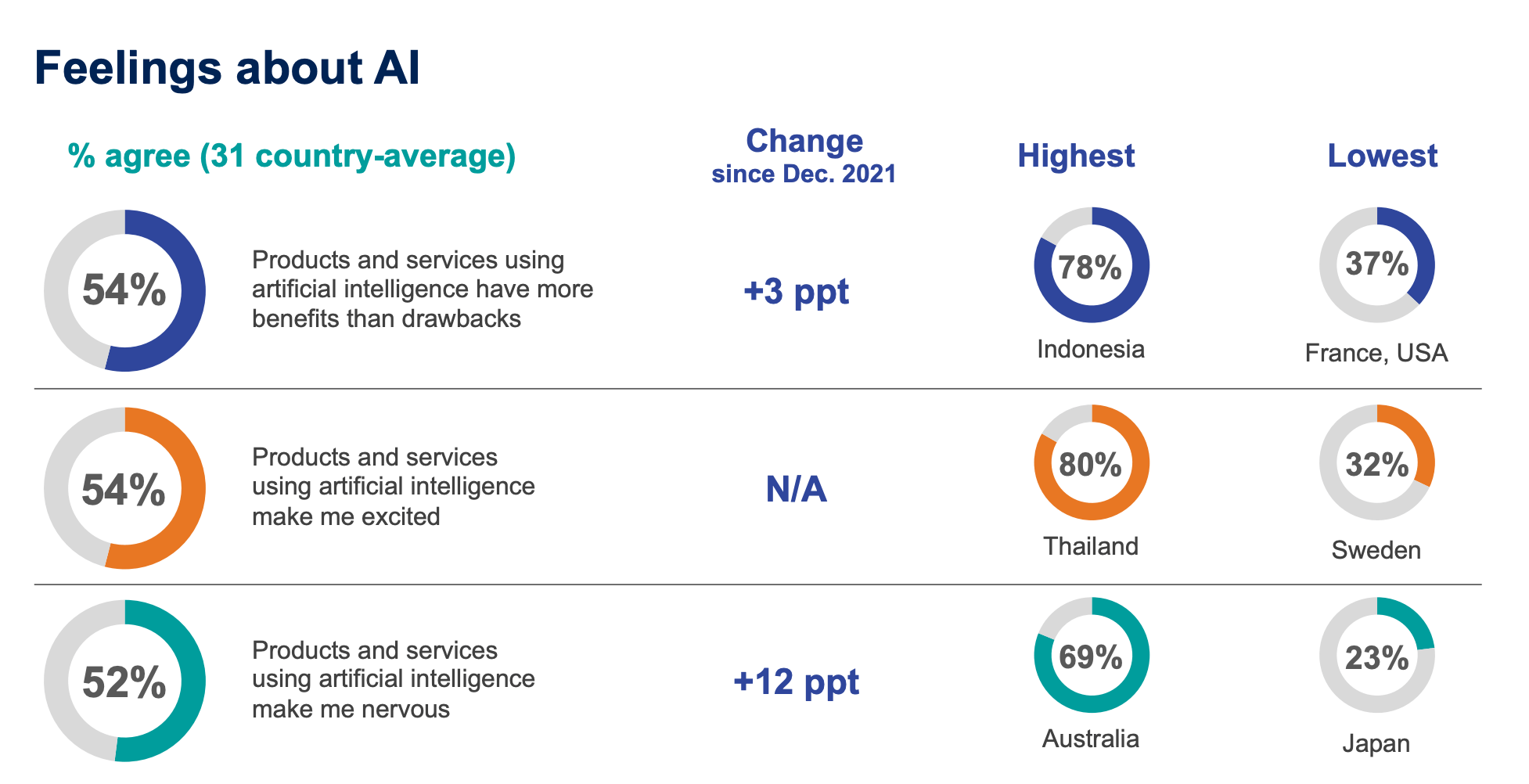
Trust in AI - Geography Differences
The level of trust in AI largely depends on geographical regions. Emerging markets and individuals under 40 exhibit higher confidence than high-income countries and older generations. Trust in AI-powered companies to protect personal information ranges from 72% in Thailand to a mere 32% in France, Japan, and the U.S. Similarly, trust in AI not discriminating against specific groups also shows considerable variation across countries.
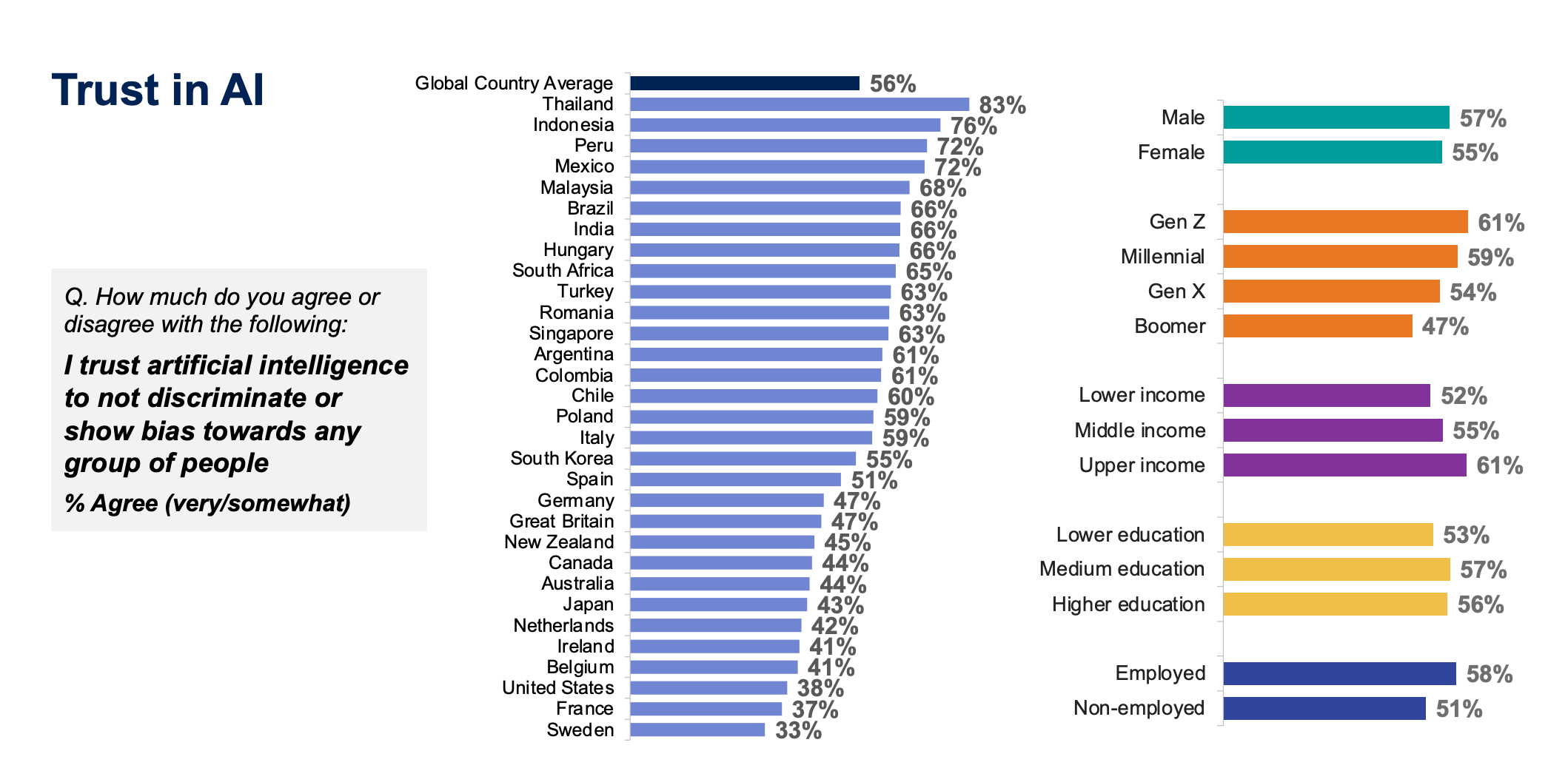
Impact on Daily Lives - Past vs Future
Globally, around half of respondents acknowledge AI's significant influence on their daily lives in the past 3 to 5 years. However, the impact differs significantly between regions, with South Korea and Southeast Asia experiencing more change than Northwestern Europe and North America. Looking ahead, a remarkable 66% of respondents expect AI to profoundly impact their lives in the next 3 to 5 years, spanning all countries and demographics, especially among the affluent and college-educated individuals.
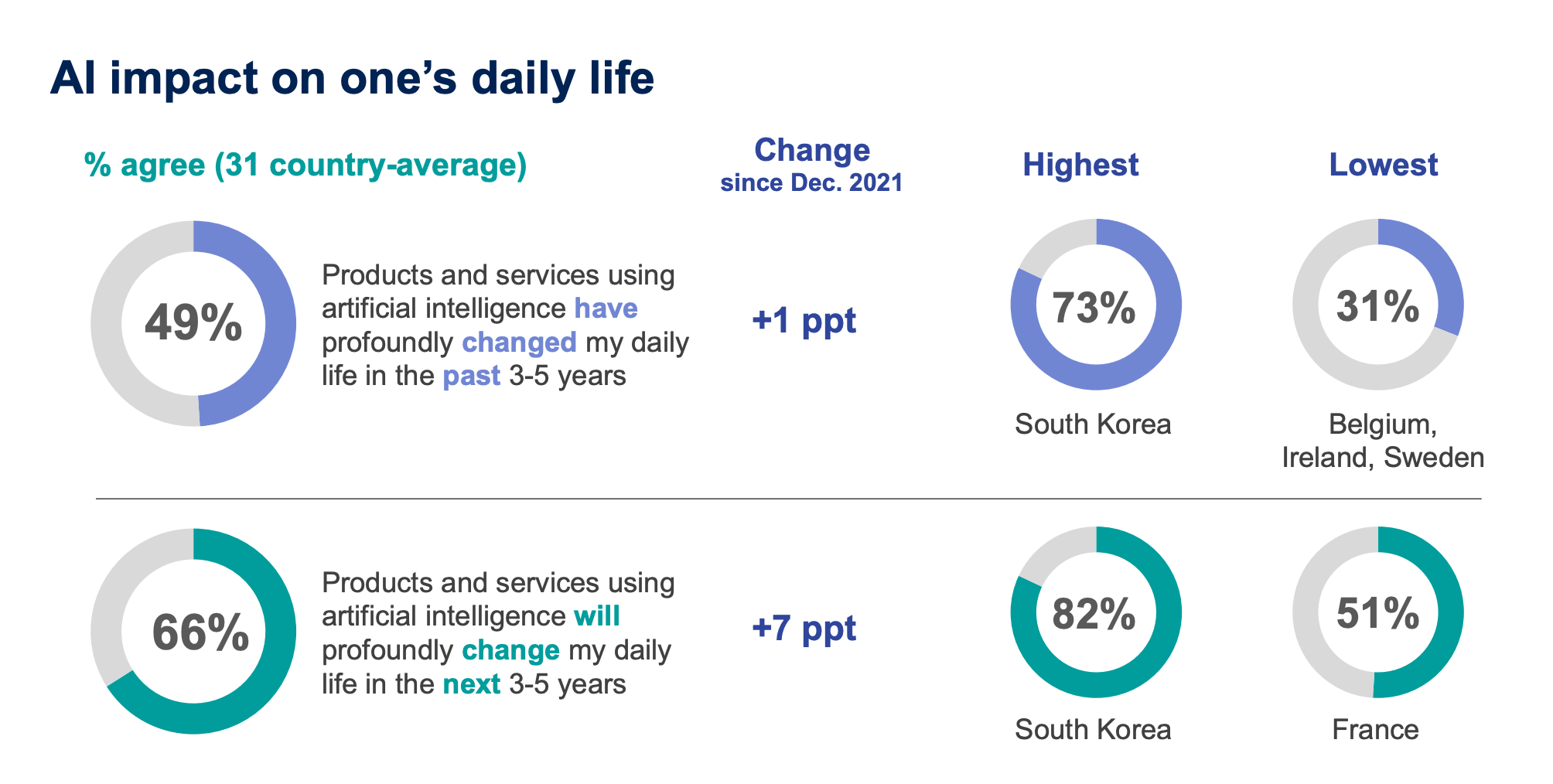
Changing Employment Landscape
AI's potential impact on jobs is a major concern, with 57% of workers expecting changes in how they perform their current roles. Even more striking, 36% foresee AI replacing their jobs entirely. Notably, workers in Southeast Asia anticipate the most significant disruptions, while Northern Europe displays the lowest levels of concern. These expectations also vary among age groups and decision-makers, reflecting diverse perspectives on AI's role in the workforce.
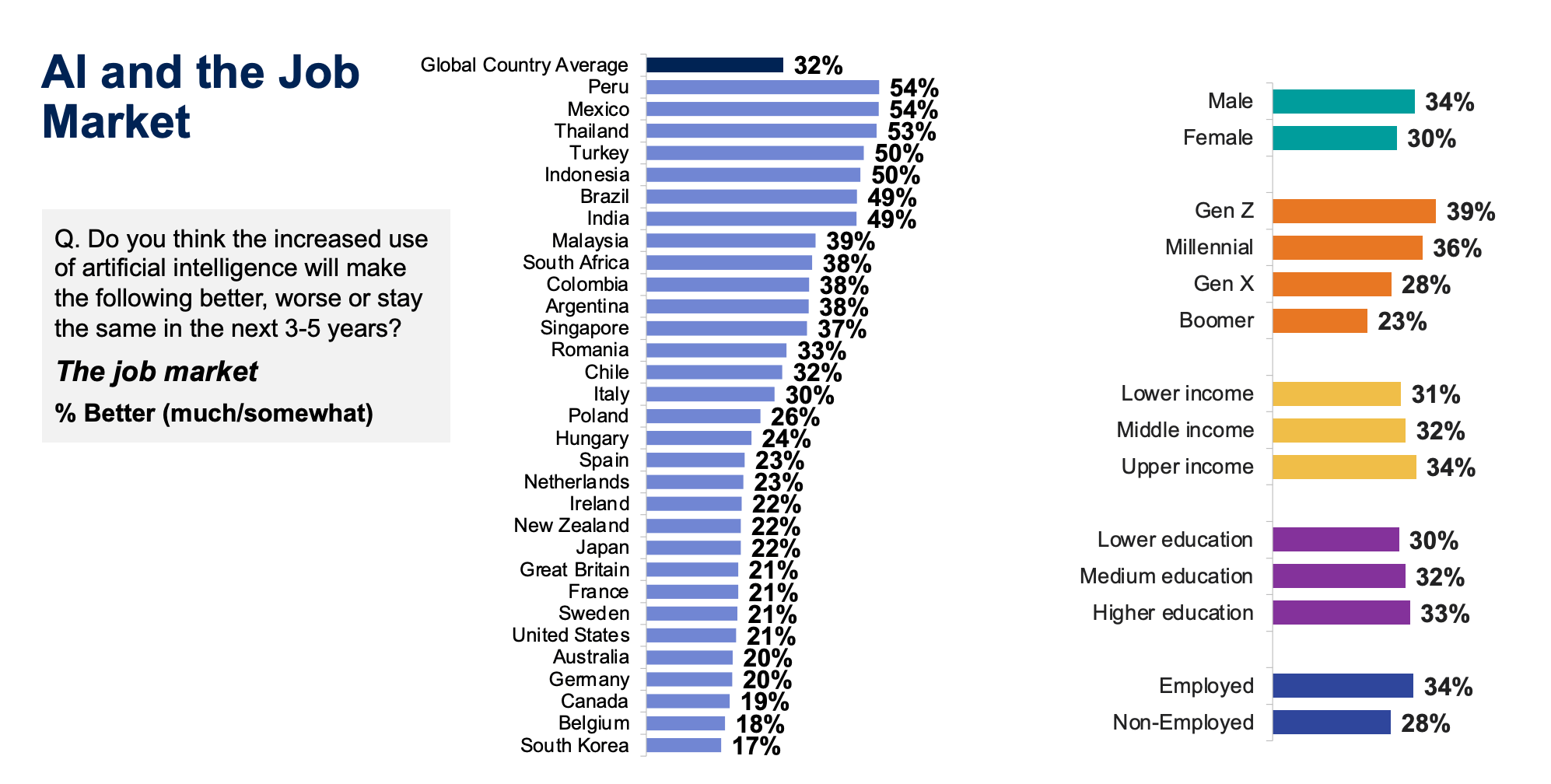
A Mix of Expectations
People hold a range of expectations regarding AI's impact. While the majority believe AI will free up more time and enhance entertainment options, optimism is lower when it comes to health, job prospects, and national economies. In fact, less than one-third of respondents expect AI to improve these aspects of life. Surprisingly, more people anticipate AI will negatively affect the job market. Once again, optimism about AI is more prevalent in the Global South and among younger, highly educated adults.
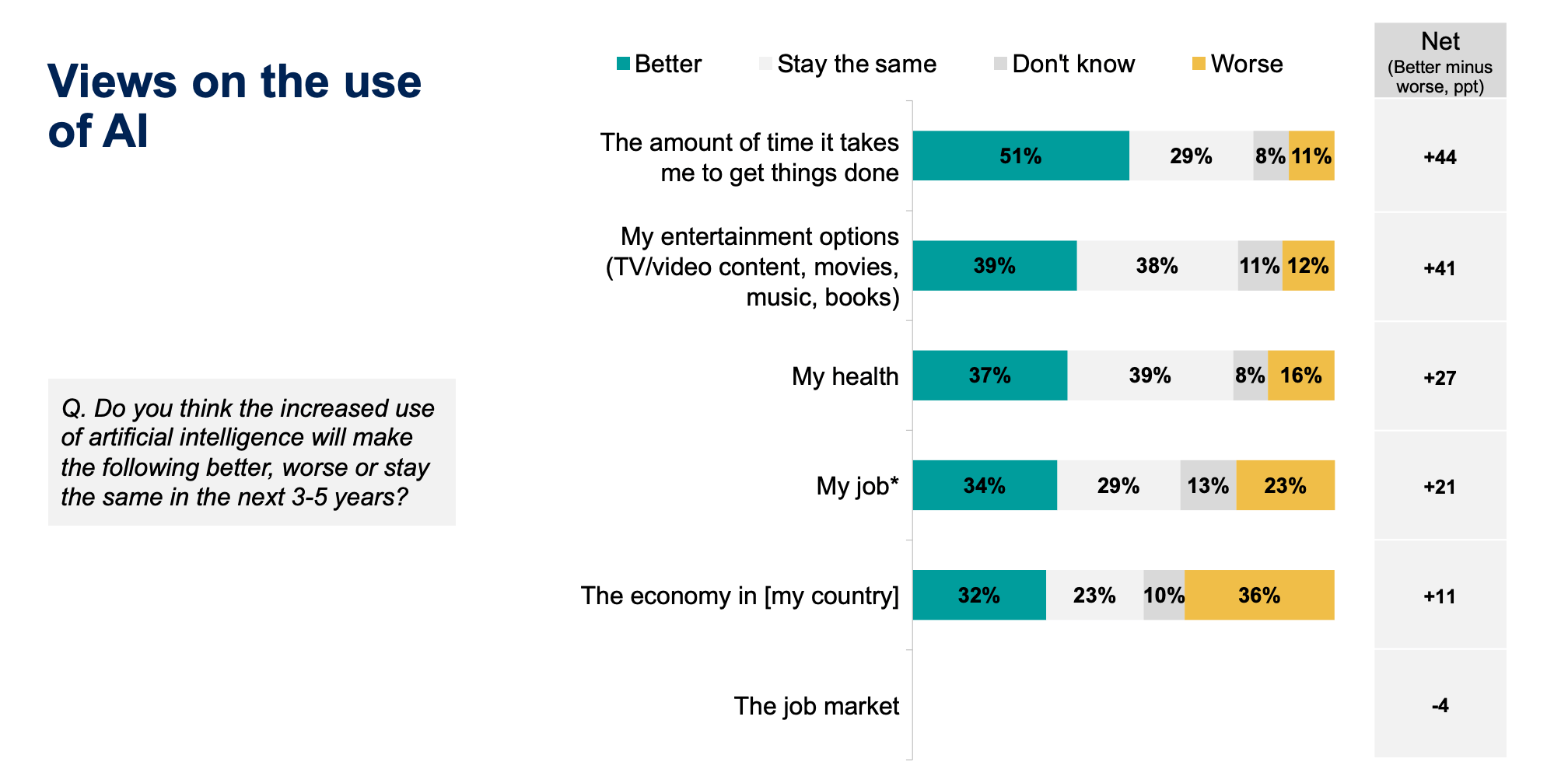
Conclusion
This global survey on AI offers fascinating insights into people's perceptions of this transformative technology. As AI continues to evolve, understanding these perspectives becomes vital for realizing its full potential. By addressing concerns and leveraging opportunities, we can embrace AI's promise and shape a brighter future together.